【94th Anniversary】 NCKU Alumni and Industry Leaders Drive Cross-Disciplinary Innovation in Semiconductors & Robotics
NCKU President Meng-Ju Shen (沈孟儒) opened the forum by highlighting that mechanical engineering is at the core of Taiwan’s technological competitiveness and emphasized the importance of connecting research efforts with external platforms. He noted the proud history of NCKU’s Mechanical Engineering Department, one of the university’s original three departments, and acknowledged the significant donations from alumni in the past two years—each exceeding NT$30 million—including bequests given in gratitude for their education at NCKU. President Shen stated, “Compared with other universities, NCKU is unique in its strong alumni support, allowing education to continue advancing. Mechanical engineering is no longer just traditional mechanism design; it is the backbone of semiconductor processes, AI automation, and smart manufacturing. NCKU’s Mechanical Engineering Department will continue to serve as a platform connecting alumni with industry to build Taiwan’s next golden decade.”
Chairman Jui-Hsiung Yen (嚴瑞雄) of Tongtai Machine & Tool Co., Ltd. (東台精機) and the Cheng Kung Mechanical Cultural and Educational Foundation, representing the organizers, remarked, “The foundation has long supported the development of NCKU Mechanical Engineering, and today’s forum is the best demonstration of alumni giving back.” He noted that many alumni have worked in equipment-related industries, and historically, most leaders in Taiwan’s mainstream industries graduated from NCKU. Early research related to semiconductors and robotics also started in the Mechanical Engineering Department. Some alumni began as import agents, while others were involved in the localization of semiconductor equipment in the 1990s. Many alumni became pioneers connecting automation to Taiwan’s industry. The inaugural forum aims to let young students feel the depth of the Mechanical Engineering Department and understand the discipline’s industrial significance.
The forum invited five NCKU Mechanical Engineering alumni as speakers to showcase the critical value of mechanical engineering in next-generation technologies:
Chairman Chien-Luo Huang (黃見駱, Class of 1979, Mechanical) of Skytech Inc. (天虹科技) shared on “Innovative Deployment in Advanced Semiconductor Wafer Manufacturing Equipment,” highlighting Taiwan’s leading advantage in 12-inch wafer equipment and the urgent challenges in localizing materials and equipment. He pointed out that future manufacturing trends of “smaller and faster” will drive more industries toward semiconductor-level precision, yet certain precision equipment and materials still rely on foreign sources. Cross-disciplinary integration and strengthening precision control will be key for local mechanical engineers in semiconductor equipment.
Vice General Manager Cheng-Yen Chiang (蔣正彥, Class of 1995, Mechanical) of All Ring Tech Co., Ltd. (萬潤科技) presented “Opportunities and Challenges for Automation Integrators in Advanced Packaging,” explaining how thermal management integration and automated production lines respond to 2.5D/3D packaging trends. He emphasized the need for rapid integration, high customization, and robust thermal capabilities, requiring cross-disciplinary collaboration in control, optics, materials, thermal flow, mechanism design, AI, and automation to accelerate breakthroughs and overcome equipment bottlenecks.
General Manager Zan-Ren Chen (陳贊仁, Class of 1980, Mechanical) of Contrel Technology Co., Ltd. (東捷科技) spoke on “Laser Processing Technology in Semiconductor Packaging,” introducing femtosecond laser “cold processing” techniques to overcome conventional thermal limitations. He highlighted the AI chip packaging applications of laser processing, noting its high precision, non-contact nature, flexibility, environmental friendliness, and suitability for multiple materials.
General Manager Dun-Zhi Shih (石敦智, Class of 1979, Mechanical) of Gallant Micro. Machining Co. (均華精密) presented on “Key Process Development in Advanced Packaging of AI Chips,” analyzing precision pick-and-place, thermal management, and AOI inspection in HBM and CoWoS advanced packaging. He discussed how AI-driven high computing demand accelerates packaging evolution and heterogeneous integration. Shih emphasized that larger chip and substrate sizes and complex structures demand unprecedented precision and stability, requiring mastery of positioning, measurement, flow disturbances, vibration, and more—showing that mechanical engineering remains indispensable in the semiconductor supply chain.
CEO Shi-Tung Lin (林世東, Class of 1974, Mechanical) of Mirle Automation Co. (盟立自動化) concluded with “AI Humanoid Robot Development Trends,” sharing the Apollo humanoid robot’s modular joints and reduction gear technology. He forecasted its potential applications in manufacturing and service environments. Lin noted that lightweight reducers, modular joints, and high-performance actuators are key development directions, with Taiwan’s best entry point being the integration of mechanical structures, actuators/reducers, sensors, and controllers with AI brains, enabling mass-producible, maintainable modular joints and complete robotic solutions.
The forum concluded with a panel discussion moderated by Associate Dean Yu-Long Lo (羅裕龍) of the College of Engineering, with the five speakers, focusing on three main topics: “Redefining the Role of Mechanical Engineering in the Semiconductor Industry,” “New Opportunities in Automation Driven by AI and Cross-Disciplinary Integration,” and “Talent and Collaboration Models in the Era of Smart Manufacturing.” The discussion combined practical experience with industry-academia perspectives, providing an engaging and insightful dialogue.
In the first session, panelists discussed the role of mechanical engineering in semiconductor production. Chairman Huang noted Taiwan’s current challenges in manufacturing and equipment, emphasizing that although Taiwan is a leading wafer producer, front-end equipment gaps remain. Research talent must integrate mechanics, electrical control, materials, and physical chemistry, with Mechanical Engineering students’ cross-disciplinary skills serving as the foundation. General Manager Chen added that innovation stems from cross-disciplinary integration, and the Mechanical Department is ideal for cultivating these abilities.
In the second session on “AI and Cross-Disciplinary Integration Driving New Opportunities in Automation,” Vice General Manager Chiang shared experiences implementing AI and digital twin technologies, critical for fast line inspection and prediction. CEO Lin noted that integration of motion control, communication, and mechatronic modules is key for AI robotics, requiring attention to heat dissipation and energy efficiency. Mechanical students should strengthen related competencies.
The final session, “From Academia to Industry – Developing Talent and Collaboration Models in the Smart Manufacturing Era,” featured Shih emphasizing rapid growth in Taiwan’s semiconductor industry and high demand for talent. He encouraged students to participate early through internships and industry-academia collaborations, proactively ask questions, and maintain strong motivation. Associate Dean Lo responded that NCKU’s colleges have linked practical courses with industry, providing abundant resources and fostering cross-disciplinary talent development.
The inaugural NCKU Mechanical Engineering Forum successfully united academia and industry, demonstrating the department’s commitment to promoting smart manufacturing, deepening industry-academia collaboration, and repositioning mechanical engineering in Taiwan’s high-tech sector.
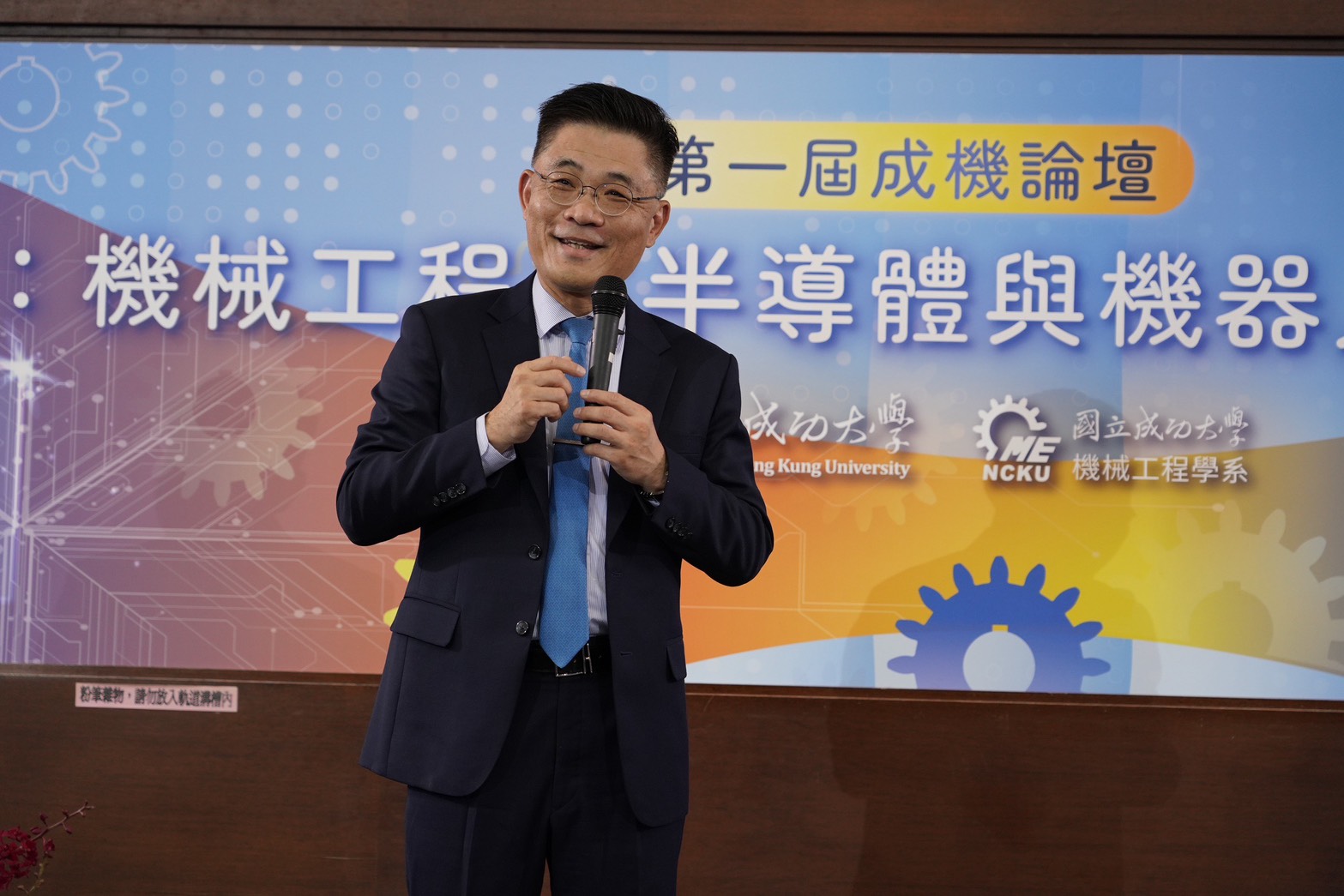
NCKU President Meng-Ju Shen expressed his gratitude for the support of the Mechanical Engineering alumni and hoped that the forum would foster more opportunities for collaboration.
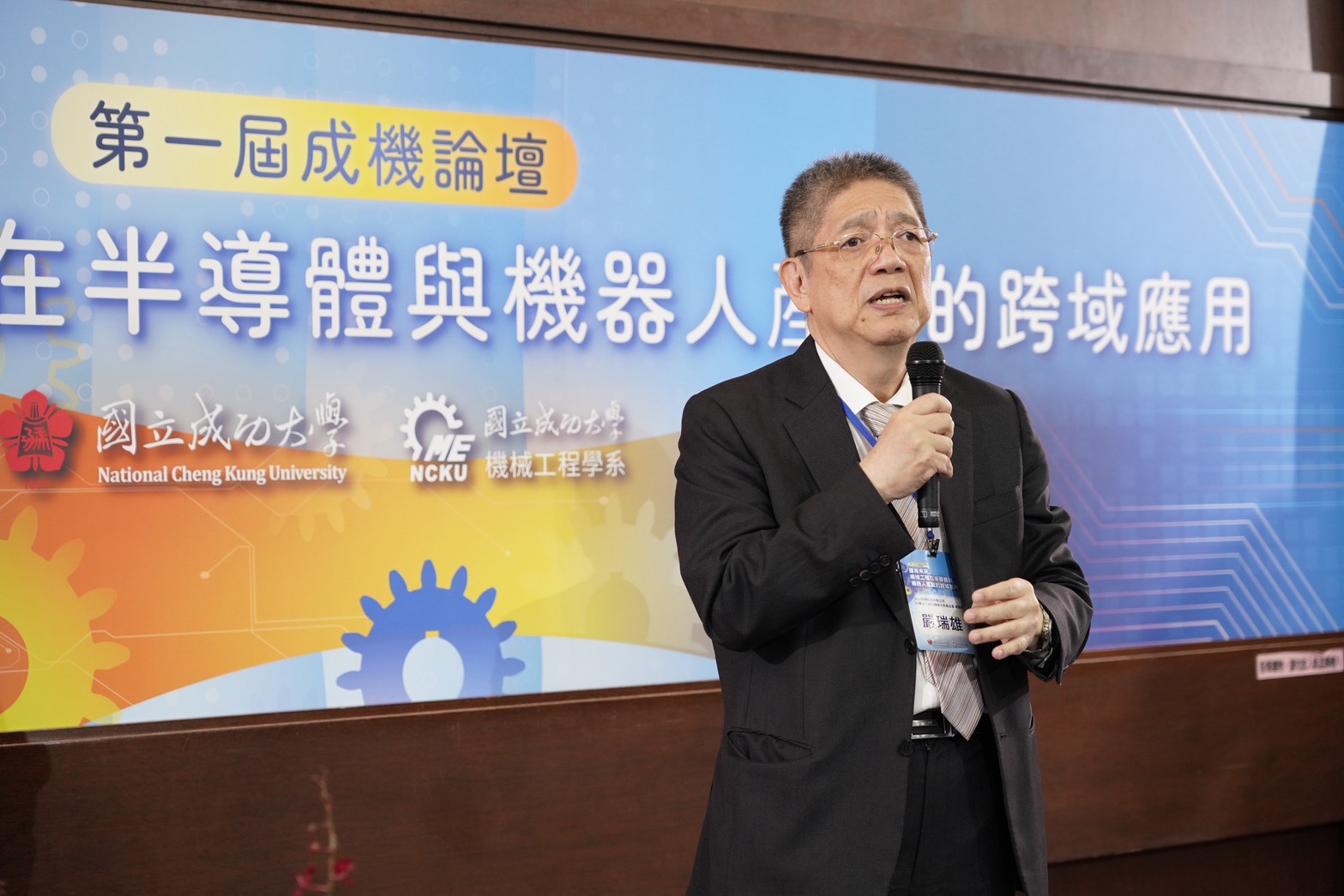
Chairman Jui-Hsiung Yen of the Cheng Kung Mechanical Cultural and Educational Foundation expressed his hope that the inaugural NCKU Mechanical Engineering Forum would showcase the importance of NCKU’s Mechanical Engineering Department in academia, industry, and government.
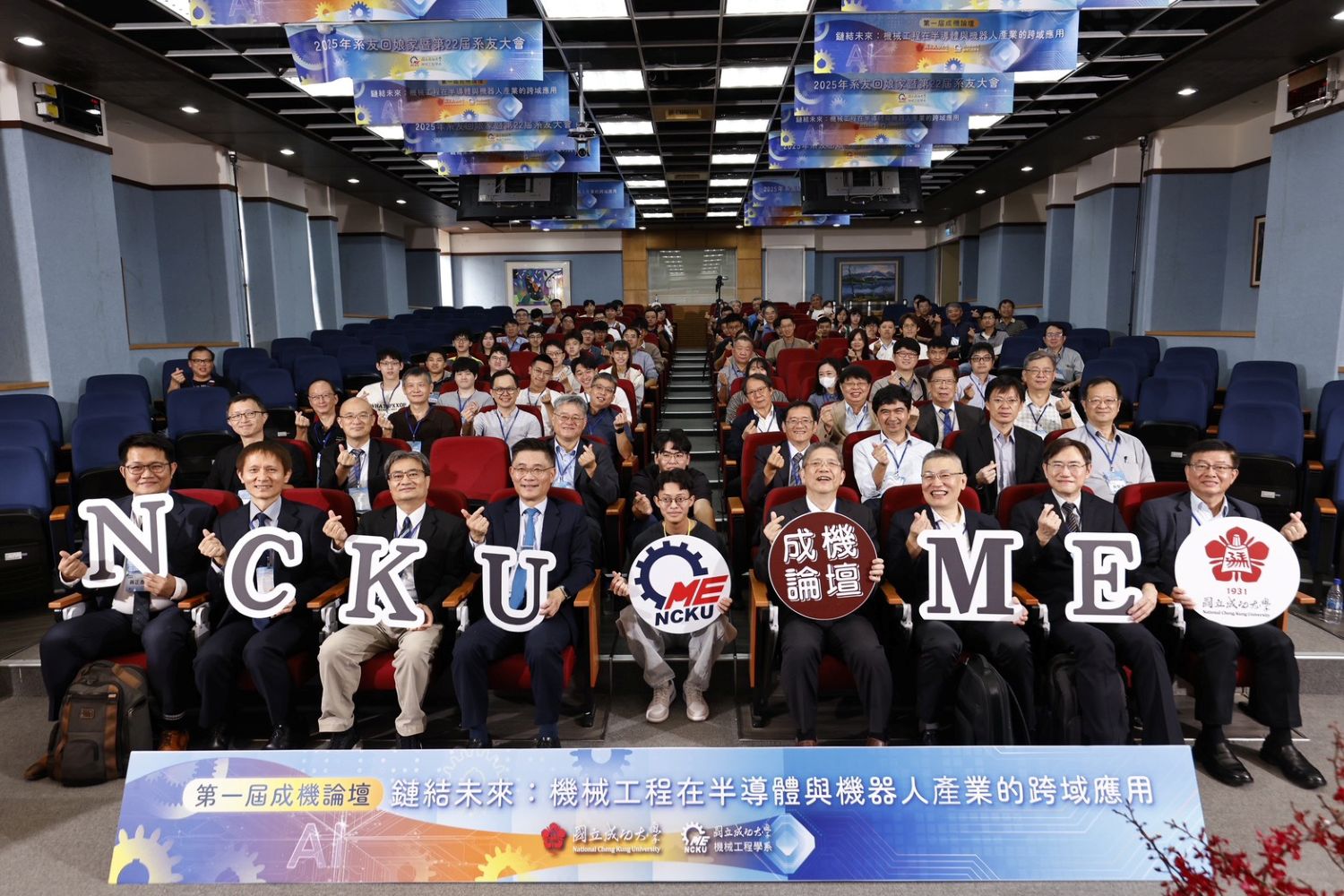
To celebrate NCKU’s 94th anniversary, the Department of Mechanical Engineering and the Cheng Kung Mechanical Cultural and Educational Foundation jointly hosted the inaugural NCKU Mechanical Engineering Forum.
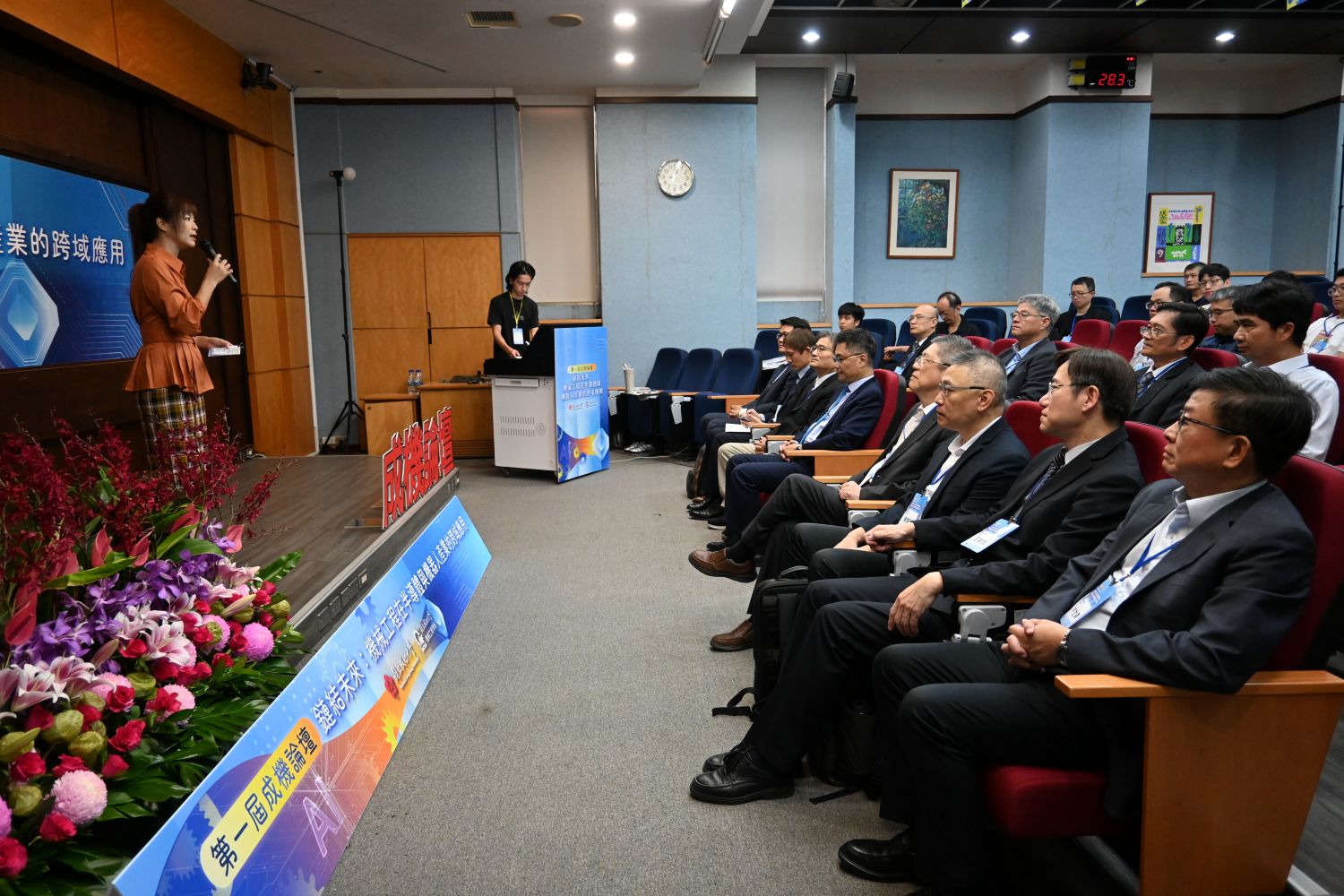
The Department of Mechanical Engineering at NCKU and the Cheng Kung Mechanical Cultural and Educational Foundation jointly hosted the inaugural NCKU Mechanical Engineering Forum. (Photo by NCKU News Center)
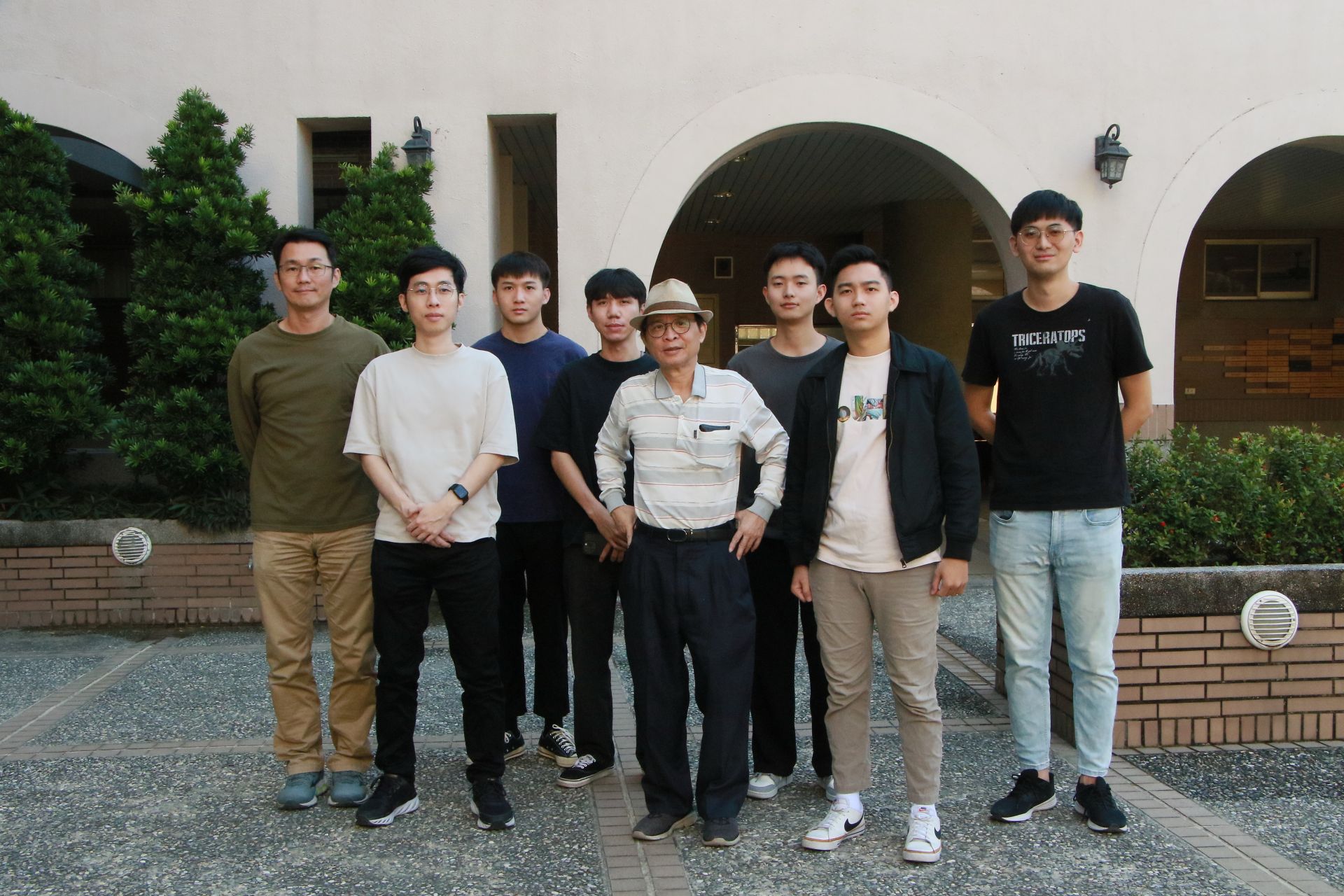
SDG9NCKU excelled in the 6th Asia-Pacific HPC-AI Student Competition 2023, winning Best AI Performance Award and Third Prize.
View more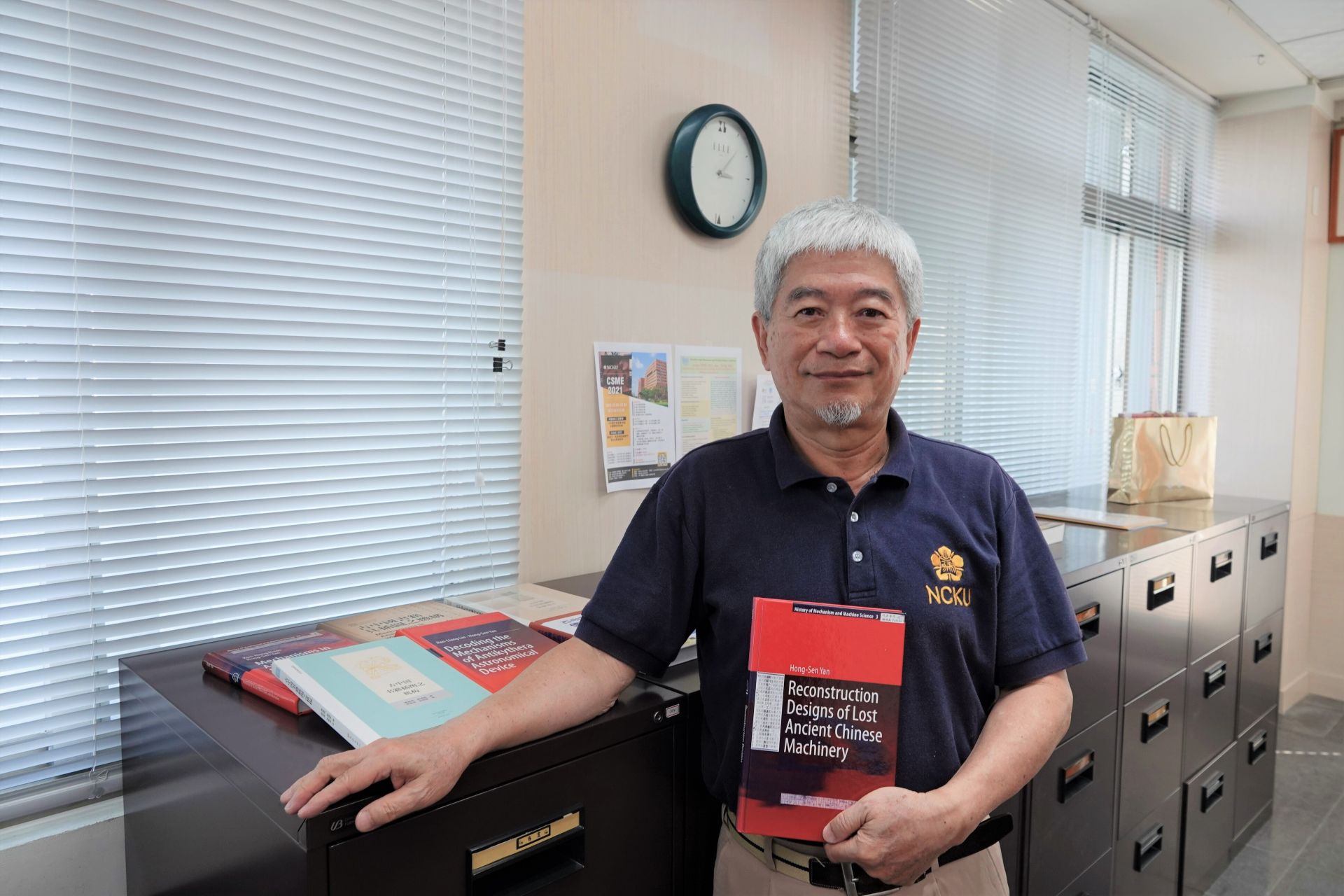
SDG9A Peek into Ancient Wisdom: Hong-Sen Yan Becomes First Asian Recipient of ASME's Engineer-Historian Award
View more



















